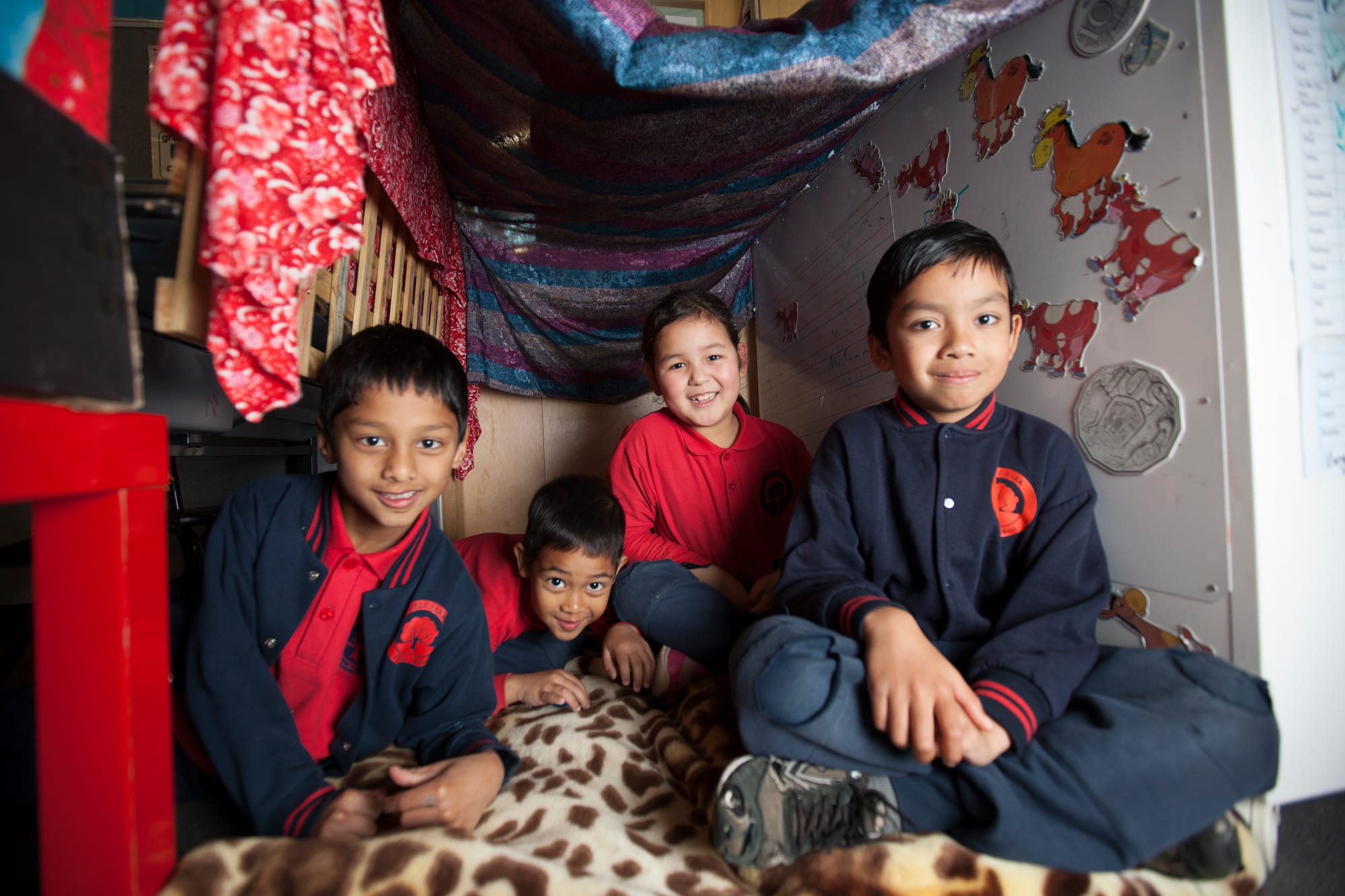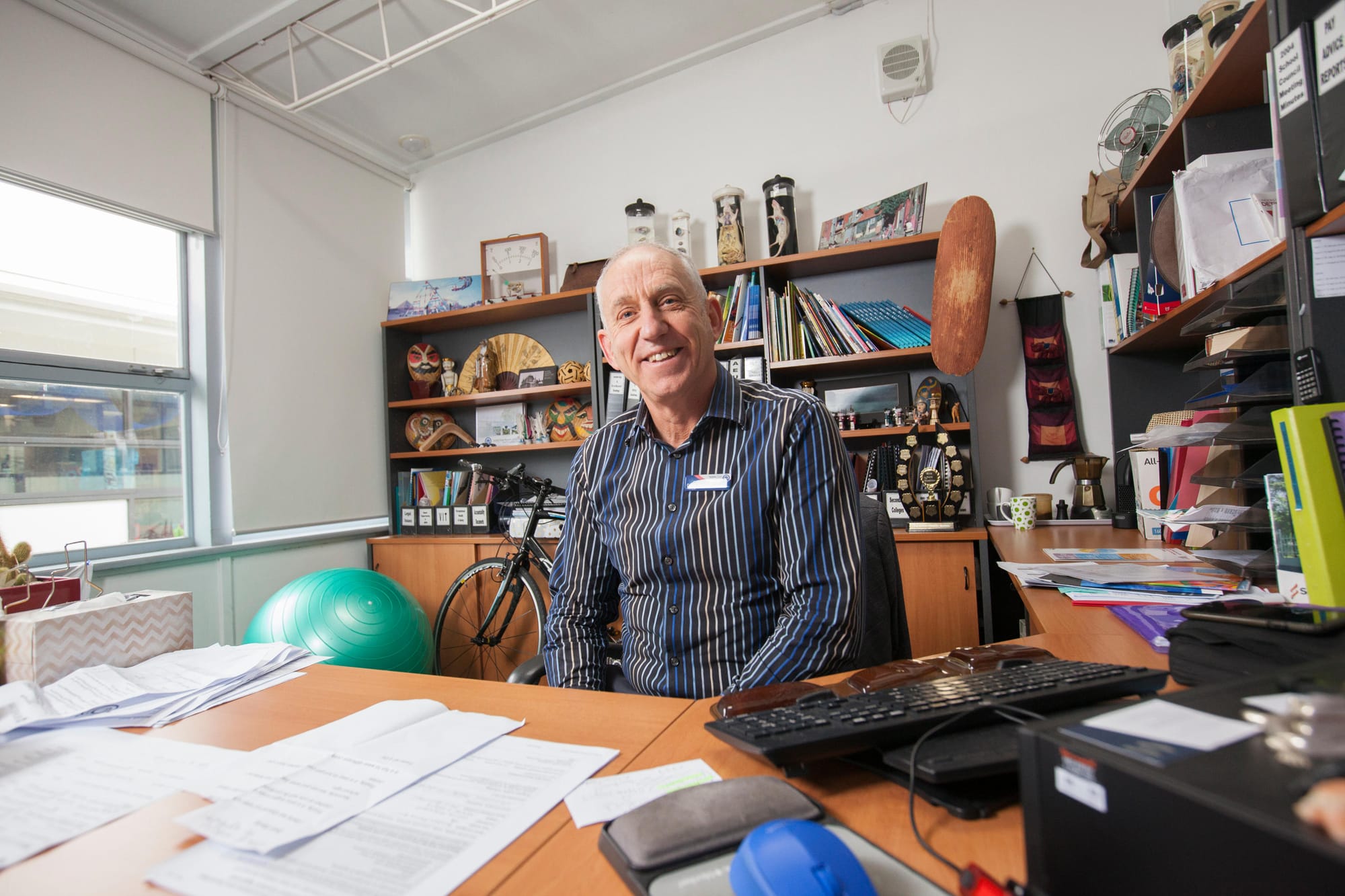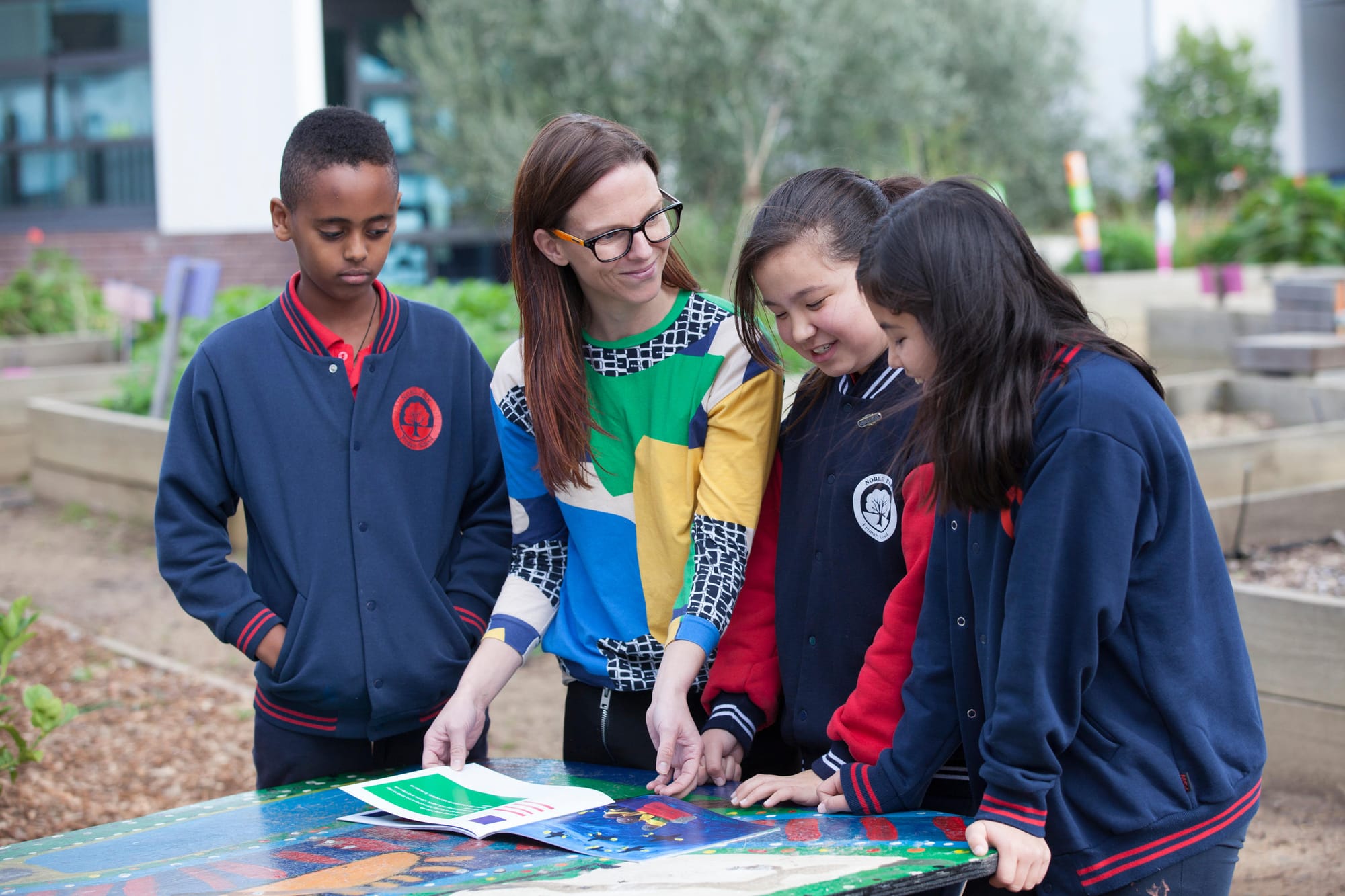
In a primary school in Melbourne’s south-east, the students build cubby houses in the classrooms and crawl into them to learn – hiding places where they feel happy and safe.
The times tables are easier to learn in the cubby houses. And the lunches taste better, too.
It’s the same in the schoolyard. The children are encouraged to do whatever makes them feel safe and happy, and so they cocoon themselves in hammocks or build stick nests – nothing is “out of bounds”.
It’s all part of a play-based approach to learning that Noble Park Primary School has adopted to help its large cohort of migrant and refugee students adapt to their new home.

It’s a culturally rich 370-strong school community represented by up to 40 language groups, with many families recently arrived in Australia. Ninety per cent of its students don’t speak English as their first language.
It’s largely because of the school’s student profile that its principal, David Rothstadt, has focused so much attention on safety and belonging.
“The first thing you have to do with students who come from traumatised backgrounds is actually make them feel safe and secure,” he said. “It’s an absolute precondition to learning.
“There’s a bit of a world view that we must start testing them and filling them up with stuff, but that’s not the first thing you do. The first thing you do is orient them to the community and support their families – that’s a key part to the puzzle.”
Dark tales
Mervi Kaukko is a lecturer in Monash University’s Faculty of Education. She spent 18 months with the students from Noble Park, researching their experiences and listening to their stories.
She interviewed the students and encouraged them to tell their stories by drawing pictures and then talking to her about them.
“Many of the pictures were painted in dark colours – dangerous sea crossings, dead family members, fear, neglect and abuse,” she said.
Related content: The stories behind the statistics: refugee and asylum-seeking students in higher education
It was from this that 13 of the students, from seven countries, decided to combine their imagination and their experiences to create the story of 10-year-old Ali and his family’s journey towards safety.
“Our research took 18 months, and the children shared many stories, but they told me they wanted their story to be heard beyond my academic papers, so they decided to write their own book,” she said.
The book has now inspired a short animated film, Ali and the Long Journey to Australia, which has been released as part of Refugee Week 2018. The University worked with professional animators, using more than 2500 still images, to create the stop-motion film. A toolkit has also been produced for teachers who want to use the film in their classrooms.
The book is now part of the school’s reading program, and Noble Park Primary’s principal is delighted to see the story come to life as a short film.
“The kids are going to be blown away by seeing their book as an animation. They’ll absolutely love it,” he said.
“You get a sense of the emotion in each of the scenes – some have a sense of urgency, some of fear, and others have joyful moments,” he said.
Students’ experiences vital
Dr Kaukko said that “Ali’s story” reflects the findings of her research with refugee-background students in Australia and Finland – that successful refugee students are those who are encouraged to use their experiences to learn, adapt and thrive in a new country.
“The traditional approach to the education of young refugees is to focus on gaps in their knowledge, but this fails to recognise that the students’ experiences are central to their success,” she said.
“Researchers are so focused on reducing failure and exclusion in schools, and filling in the gaps in students’ learning, that they ignore the wealth of knowledge students can bring to their education.
“Some of the children spoke about horrible things, experiences no child should go through, but they found ways to think positively about what they learnt in those situations.”
“Success for a refugee student isn’t just measured by academic excellence, it’s built on safety and belonging.”
Dr Kaukko hopes her research will spark further debate around “deficit discourse”, a mode of thinking that frames identity around a predetermined negative narrative.
“I understand that it’s hard to imagine how escaping from home, missing out on years of schooling and having to start over in a strange land could positively influence a refugee child’s future chance of doing well at school,” she said.
Read more: Documenting border-related refugee deaths in Australia
“But these stories, like Ali’s, are not miraculous exceptions or uncommon. They are just too often submerged by deficit discourses that position the children as victims and their backgrounds as barriers to success.
“Tuning our ears towards more positive frequencies is needed if we want to hear the stories refugee students want to share and have them thrive in our education system.
“Success for a refugee student isn’t just measured by academic excellence, it’s built on safety and belonging.”

Building on strengths
David Rothstadt was thrilled that Monash was exploring the young refugee student experience from a strength-based model.
“That was engaging for us because it was taking a positive view of what we can build on. I think we need to be focusing more on what we can do, rather than what we can’t do.
“Our experience is that school practices that build on students’ strengths, rather than focus on the gaps, plays an important role in helping those students flourish.”
Mervi Kaukko’s findings are part of a new Finnish-Australian research project, Educational Success through the Eyes of a Refugee Child. The research was carried out in collaboration with Monash Associate Professor in Education, Jane Wilkinson.





